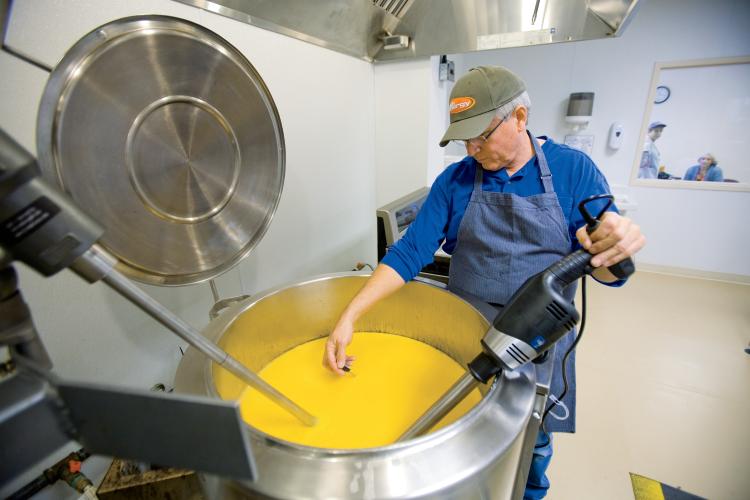Home > Tennessee > Tennessee Farm to Table > Tennessee Food Entrepreneurs Find a Resource in Commercial Kitchens
Tennessee Food Entrepreneurs Find a Resource in Commercial Kitchens
In partnership with: Tennessee Department of Agriculture

Mike Weeks has turned a weekend barbecue sauce competition into a business, and a partnership with the Cumberland Culinary Center is making the entrepreneur’s life a little bit easier. Weeks, the owner of Southern City Flavors, had gotten used to the eight-hour roundtrip drive from his home in Tennessee to the Indiana facility that met the production requirements for his sauce and jelly-making business. But now that he’s found a kitchen close to home, his business is really cooking.
“It’s well-suited for my operation of bottling jams and jellies,” explains Weeks. “And it has labeling and date coding machines that help me create a more professional-looking product while keeping me compliant with all food safety regulations.”
The 2,400-square-foot facility in Lebanon is a joint project of the Tennessee Department of Agriculture (TDA), the U.S. Department of Agriculture, Cumberland University and the Wilson County school system. Opened in 2010, it is a licensed commercial kitchen that can be rented by Tennessee food entrepreneurs for their own food-processing operations.
“The center is a great asset to the middle Tennessee area,” says Linda Shelton, agricultural marketing specialist for TDA. “Companies are able to spend time and funds on growing and marketing their Tennessee brand products rather than incurring the expense of having their own production kitchen.”
Or in Weeks’ case, driving to another state to use one.
Stirring Up More Business
Sue Sykes is the volunteer kitchen manager of the Cumberland Culinary Center. As president of her own company, Tennessee Gourmet, she knows firsthand what entrepreneurs need and works to provide it.
“We offer training for the businesses in food sanitation, equipment operation and kitchen protocols,” she says. “We’re also available to supervise their operation until they’re comfortable with the process.”
Sykes, and her husband, Gary Dummer, are also responsible for opening, closing and maintaining the kitchen each day, for ensuring that the food safety program is in full compliance and for calibrating the machines – more tasks that the entrepreneur doesn’t have to worry about. They also organize bulk purchasing for glass containers to create additional savings for the businesses that use the center.
And it’s not just businesses that benefit. The Lebanon community does, too, through access to locally made products and through opportunities for local students to explore food production processes by visiting the center.
It’s a concept that’s catching on across the state, with similar facilities operating in Cannon, Montgomery and Hamilton counties and with several other communities expressing interest in providing such a service.
“It’s an opportunity for small-scale producers to use commercial-scale facilities to build their businesses,” Sykes says. “That’s a benefit for everyone.”



